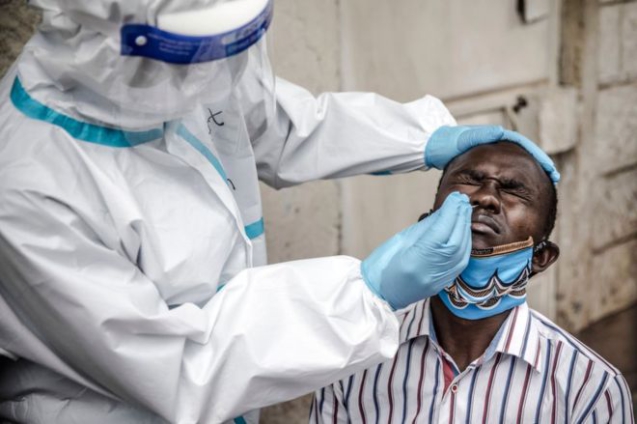Until the ravaging effect of the coronavirus disease on the globe, many individuals had the liberty to freely play their varied roles in society with little or no restrictions within their geographical spaces.
However, with soaring figures of fatalities due to infections from the disease, many governments on the continent locked down towns and cities in an effort to nip the spread of the virus in the bud.
With virtually no economic activities ongoing and social life also brought to a halt, countries – developed and developing - are making strenuous efforts to devise new strategies to support and sustain the lives of the vulnerable in society.
In a developing country like Ghana where majority of the citizenry earn below the daily minimum wage, any pandemic, in the like of COVID – 19 that stalls daily economic activity, is likely to plunge the greater majority of the citizenry into a precarious state, with many angling for survival.
With a cure for the pandemic not yet found and the spread of the virus not seeing any end in sight, lots of world leaders are in a state of conundrum and doing everything possible to find solutions that will mitigate the plight of their citizens. While world leaders continue to grapple with the situation, many families are also confronted with hardships of varied magnitudes.
Emerging Opportunities
The challenge in our hands is undoubtedly a headache for all – governments, corporate organisations, policy makers, families and individuals. This notwithstanding, there are opportunities that this pandemic presents us with that can be leveraged on for our own growth and development.
Education and the Digital Space
The educational sector is one of the most affected since the outbreak of this pandemic. More than 130 countries have now closed down schools nationwide, impacting nearly 80% of students globally.
In Ghana, all schools, per the directive of the State, have also been closed down. However, many educational institutions have resorted to online teaching and learning as a stop gap measure in the midst of the crises. This obviously, is a paradigm shift from the traditional physical classroom teaching and learning.
Today, digital applications such as Modular Object-Oriented Dynamic Learning Environment (MOODLE), Google Classroom, Zoom, and other Learning Management Systems (LMS) have become substitutes for the traditional settings for teaching and learning. With the World Health Organization (WHO) hinting that the virus has come to stay and may not leave any time soon, policy makers are presented with the greatest opportunity to institute measures that will make online teaching and learning a standard practice and not merely an option.
Though quite a number of developing countries may be lagging in the use of technology in many sectors of a country’s economic architecture, the situation COVID-19 presents makes it imperative for the use of digital platforms for all activities - formal or informal.
Educational institutions, particularly, stand to benefit in this new wave of total migration into the cyber space. As academic institutions, instructors/teachers and students make the effort to find their feet in the utilization of online resources, it also behooves on policy makers to institute strong educational policies that focuses on digitizing physical classrooms into virtual ones. Experiential Learning and Flipped Classroom should be the pedagogy for the future in providing and achieving educational excellence amid the continuous rise in numbers of this deadly virus.
Income
This is the time where working from home has become the new normal. A perfect opportunity to restart and boost your career as an individual. For many women, especially those who have prior familial commitments before this deadly outbreak, this is a blessing for them.
Online jobs such as tele-calling, news editing and proofreading, content writing, and virtual assistance are but a few of the job opportunities available for all to tap into to earn extra income to supplement the already meagre salary one is earning.
Combating the Pandemic
As at date, no cure for COVID-19 has been found. Health experts alleges that most of the medicines paraded on social media as cure for the disease are at best, immune boosters that can help in the fight against the pandemic but not cure it entirely.
With this in mind, the call for wearing of mask, regular washing of hands, regular use of sanitizers and the need to practice social distancing as well as regular exercising may just be the immediate antidote for combating COVID-19 till we get a vaccine.
The writer is the Registrar at BlueCrest University College in Accra, Ghana. For feedback on this article, you can reach the writer via mail on edna.asante@bluecrest.edu.gh
Latest Stories
-
Kora Wearables unveils Neo: The Ultimate Smartwatch for Ghana’s tech-savvy and health-conscious users
3 mins -
NDC supports Dampare’s ‘no guns at polling stations’ directive
6 mins -
Police officer interdicted after video of assault goes viral
24 mins -
KNUST’s Prof. Reginald Annan named first African recipient of World Cancer Research Fund
25 mins -
George Twum-Barimah-Adu pledges inclusive cabinet with Minority and Majority leaders
1 hour -
Labourer jailed 5 years for inflicting cutlass wounds on businessman
1 hour -
Parliament urged to fast-track passage of Road Traffic Amendment Bill
1 hour -
Mr Daniel Kofi Asante aka Electrician
1 hour -
Minerals Commission, Solidaridad unveils forum to tackle child labour in mining sector
1 hour -
Election 2024: Engagement with security services productive – NDC
1 hour -
Retain NPP for the good of Ghana – Rebecca Akufo-Addo
1 hour -
‘Let’s work together to improve sanitation, promote health outcome’ – Sector Minister urges
1 hour -
Ellembelle MP cuts sod for six-unit classroom block at Nkroful Agric SHS
1 hour -
‘I’ll beat the hell out of you if you misbehave on December 7’ – Achiase Commanding Officer
1 hour -
AFPNC leads the charge on World Prematurity Day 2024
2 hours

